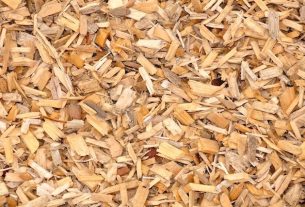Jucá is a plant of Brazilian origin that can be used to heal wounds, to combat bleeding and to help treat asthma attacks, coughs with phlegm, diabetes, diarrhea and respiratory allergies.
This tree has the scientific name of Caesalpinia ferrea and some studies indicate that it is possible to find substances called coumarins and flavonoids in jucá that have antioxidant, anti-inflammatory and anticoagulant effects.
Therefore, the bark, leaves, seeds or fruits are removed from this tree and used to prepare tea or drink with bark powder, and the extract from this plant can be found in health food stores or compounding pharmacies.

What is it for
Jucá can be used for:
- Wound healing;
- Hemorrhages;
- Asthmatic crisis;
- Cough with phlegm;
- Diabetes;
- Respiratory allergy;
- Diarrhea;
- External hemorrhoids;
- Gastric ulcers.
It can also be used to help treat bacterial and fungal infections, especially inflammation in the mouth, such as gingivitis, and can be used to prevent cancer, due to its action in protecting the body’s defense cells.
Furthermore, some studies have been developed to prove the benefits of jucá oil on skin health, as its use can increase skin elasticity and help replace collagen and hyaluronic acid, reducing the negative effects of excessive exposure to the sun. See more about foods that also help with collagen replacement.
How to use
Jucá can be used through the oil extracted from the fruits or through tea, which is made by cooking the leaves or by infusing the bark powder, sold in health food stores.
- Tea with jucá leaves: use 2 teaspoons of dry jucá leaves for 1 liter of water. Cook the leaves for 10 minutes, strain and drink;
- Drink with Jucá powder: put 1 teaspoon of jucá powder in 1 glass of water and then mix.
There are no studies that recommend the ideal dose for making the tea, and it should always be done with the guidance of a herbalist and following recommendations from a general practitioner, especially if the person already uses other medications on a daily basis. It is also not recommended to mix jucá with other herbal medicines or teas made from other medicinal plants, as it is not known what effect it will have.
Possible side effects
As it is a plant under study, no side effects have yet been found, however, if a person experiences any different symptoms when drinking tea or drinks with jucá, it is necessary to seek medical attention to analyze the symptoms and indicate the most appropriate treatment.
And yet, like other plants, jucá must be made according to the guidance of a herbalist and a doctor, as if consumed in excess its beneficial effects may not be achieved.
When not to take
The use of jucá is contraindicated for pregnant women, breastfeeding women and women during their menstrual period, as it can cause hormonal changes. It is also necessary to be careful when using jucá in babies and children, and it is necessary to consult your pediatrician before offering any medicinal plant.
Bibliography
- SAMPAIO, Fábio C. et al. In vitro antimicrobial activity of Caesalpinia ferrea Martius fruits against oral pathogens. Journal of Ethnopharmacology. Vol. 124, n. 2. 289-294, 2009
- NAKAMURRA, Eliane S. et al. Cancer chemopreventive effects of constituents of Caesalpinia ferrea and related compounds. Cancer Letters. Vol. 177. 119–124, 2002
- PEDROSA, Tatiana N. et al. Anti-wrinkle and anti-whitening effects of juca´ (Libidibia ferrea Mart.) extracts. Arch Dermatol Res. Vol.308, n.9. 643-654, 2016

Sign up for our newsletter and stay up to date with exclusive news
that can transform your routine!
Warning: Undefined array key "title" in /home/storelat/public_html/wp-content/plugins/link-whisper-premium/templates/frontend/related-posts.php on line 12
Warning: Undefined array key "title_tag" in /home/storelat/public_html/wp-content/plugins/link-whisper-premium/templates/frontend/related-posts.php on line 13




